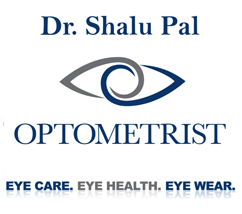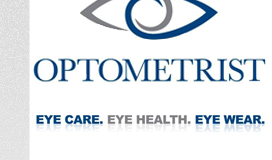Multifocal Contact Lenses & Monovision
New innovations in lens designs and materials have allowed more presbyopes to continue to enjoy the benefits of contact lens wear. Multifocal Lenses If you are over 40 your eyesight is probably changing. You may have difficulty reading or doing simple tasks up close. As we mature the eye becomes less capable of focusing from far to close objects. This is a common condition called presbyopia and it affects nearly everyone by the age of 50. The crystalline lens of the eye thickens throughout life making it harder and less flexible over time. The progressive loss in elasticity of the lens results in difficulty with tasks like reading small print and computer work. Distance vision however is usually unaffected.
If you thought presbyopia and the loss of your reading vision meant the end of contact lenses think again. New innovations in lens designs and materials have allowed more presbyopes to continue to enjoy the benefits of contact lens wear. Multifocal contact lenses are rapidly increasing in popularity as an exciting new alternative for people with presbyopia. They are now available as hard rigid gas permeable lenses and soft lenses including daily disposables.
To get started with multifocals your eyecare practitioner will determine your near vision acuity and then choose a design that works best with your cornea size and shape tear film blink pattern and lifestyle. There are several contact lens designs that help you see both up close and far away. One type known as simultaneous vision enables the eye to focus on near and distant objects at the same time by dividing the lens into two or more prescriptions either gradually as a series of concentric circles or divided horizontally (as with traditional bifocals). It s then up to the eye to ‘learn which part of the lens to use at which distance which it does remarkably quickly. Another popular design uses aspheric contact lenses whereby the lens power changes gradually from the center to the edge of the lens.
Multifocal contact lenses can provide clear and comfortable vision at all distances without the hassles vision jumps and distortions typical of bifocals or reading glasses. Your eye care professional may ask a number of questions to help determine the best type of multi-focal material and design. You may be asked to describe your usual lifestyle or daily activities and from this your practitioner will be able to recommend a solution most suited to your needs. After you ve been fitted with multifocal contact lenses your eyes will probably need some time to adjust; how much time the adaptation takes varies from person to person. Some people adjust immediately while others may take several days to adapt or need their prescription adjusted slightly.
Monovision Besides multifocal lenses there is another choice for presbyopes – monovision. This contact lens fitting technique results in the dominant eye (the eye you would use to focus a camera) being focused for distance vision while the non-dominant eye is focused for near to intermediate vision. Monovision has an extremely high success rate especially for people who have never worn reading glasses or bifocals. Either soft contacts or rigid gas permeable lenses can be used. Although monovision is a popular option a major disadvantage is that for some people it compromises depth perception. In addition since each eye is more or less independent your head position may have to be continually adjusted.
Monovision usually requires a longer period of adaptation than multifocal lenses. Because depth perception is altered with monovision additional correction may be needed for driving and operating heavy equipment. Under these circumstances driving glasses to correct the reading eye for distance and improve binocular vision are recommended. Similarly some wearers may require an additional near vision correction in the distance eye to allow prolonged or concentrated reading. A variant of monovision called modified monovision puts a bifocal contact lens in one eye and a single-vision contact lens in the other eye. This can give better depth perception for driving while still permitting near vision for reading.
Monovision certainly isn’t appropriate for everyone. However when paired with the right person it can be a great fit. Monovision is ideal for people with an active lifestyle. However since it is a compromise most people’s vision isn’t perfectly crisp up close or far away. Instead it offers the best of both worlds. If you’re considering refractive surgery as a permanent form of monovision it might be best to consider a trial period with contact lenses before making a decision. When helping you to decide whether monovision or multifocal lenses are right for you your optometrist may ask a number of questions. You may be asked to describe your usual lifestyle or daily activities and from this your practitioner will be able to recommend a solution most suited to your needs.





